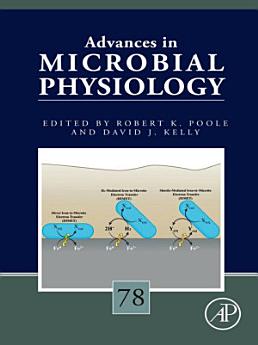Advances in Microbial Physiology: Volume 78
આ ઇ-પુસ્તક વિશે
લેખક વિશે
Professor Robert K Poole is Emeritus Professor of Microbiology at the University of Sheffield, UK. He was previously West Riding Professor of Microbiology at Sheffield and until 1996 held a Personal Chair in Microbiology at King’s College London. During his long career, he has been awarded several research Fellowships, and taken sabbatical leave at the Australian National University, Kyoto University and Cornell University. His career-long interests have been in the areas of bacterial respiratory metabolism, metal-microbe interactions and bioactive small gas molecules. In particular, he has made notable contributions to bacterial terminal oxidases and resistance to nitric oxide with implications for bacterial pathogenesis. He co-discovered the flavohaemoglobin Hmp, now recognised as the preeminent mechanism of nitric oxide resistance in bacteria. He has served as Chairman of numerous research council grant committees, held research grants for over 40 years and published extensively (h-index, 2024 = 70). He served on several Institute review panels in the UK and overseas. He is a Fellow of the Royal Society of Chemistry and the Royal Society of Biology.
Professor David Kelly is Emeritus Professor of Microbial Physiology at the University of Sheffield, UK. He has >35 years research expertise in bacterial physiology and biochemistry, membrane protein transport processes and bioenergetics, and has worked with the zoonotic food-borne pathogen Campylobacter jejuni for >25 years. A major program to study C. jejuni physiology was carried out in his laboratory, in particular the responses to oxygen, many aspects of carbon metabolism and functional analysis of the electron transport chains. He has long-standing interests in membrane transport mechanisms and in the 1990s discovered an entirely new class of periplasmic binding-protein dependent prokaryotic solute transporters, the TRAP transporters, now known to be common in a diverse range of bacteria and archaea. He has published >150 papers (h-index 2024 = 56), held numerous grants, served on grant committees and has been a regular invited speaker at national and international conferences. He is the recipient of a Leverhulme Emeritus Fellowship from the Leverhulme Trust, UK.







